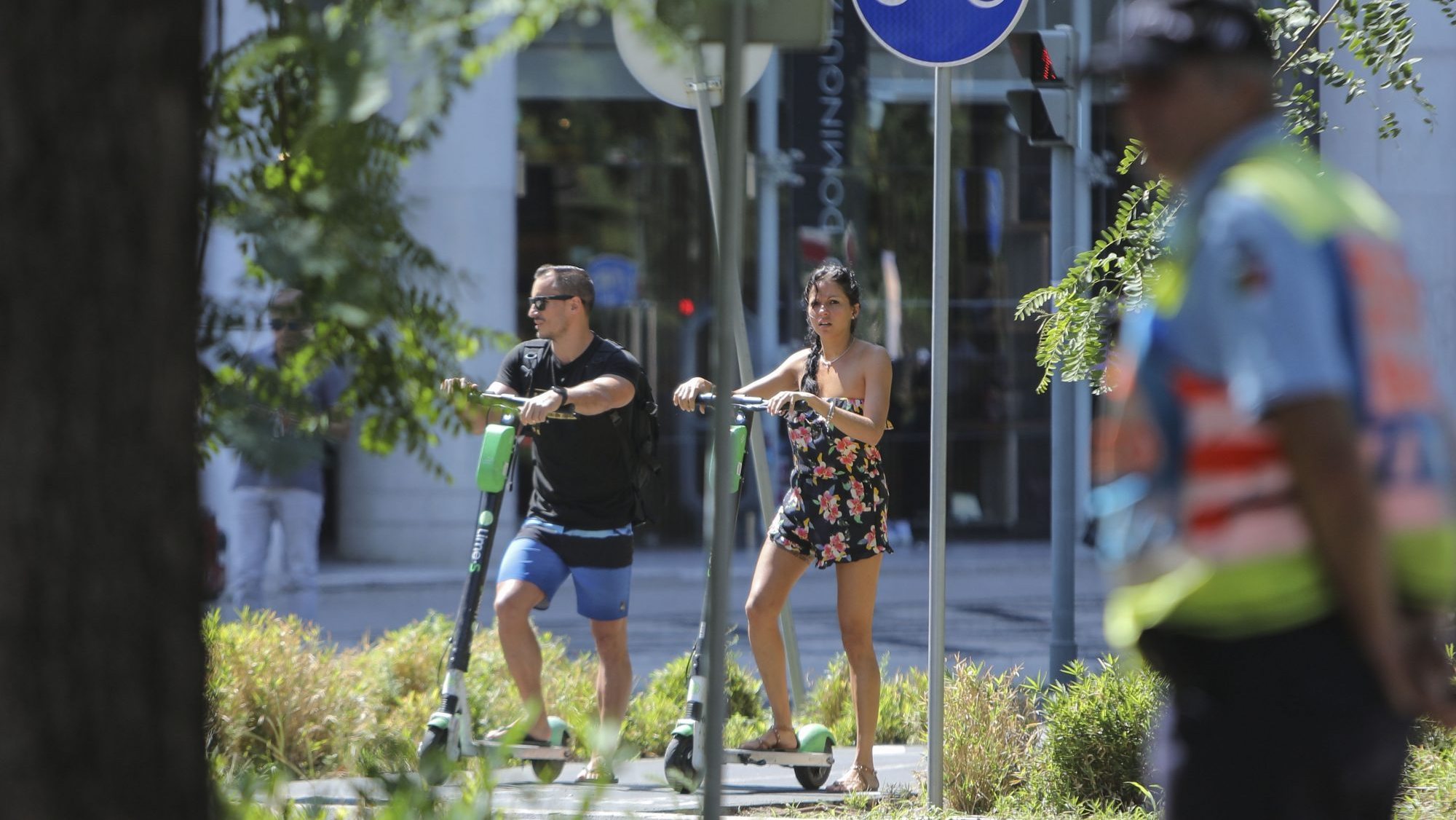The mayor of Lisbon said on Tuesday that the number of scooters in the city “is unsustainable”, many of which are poorly parked, and defended a memorandum of understanding with soft mobility operators before the Shared Mobility Regulation.
The regulation will be well done, but first I want an agreement, a memorandum of understanding, with all these operators that are in the market”, said Carlos Moedas (PSD) at the Lisbon Municipal Assembly meeting to present the intervention of the municipality executive between June and August.
Questioned by the municipal deputy of the Liberal Initiative (IL) Rodrigo Mello Gonçalves about the elaboration of the Shared Mobility Regulation to discipline the abusive use and parking of bicycles and scooters in the city, the mayor said that the executive had already had a first meeting with some operators, in which he asked how many scooters each had on the market: “we count 15 thousand scooters“.
AM of Lisbon recommends the City Council to increase regulated parking for bicycles and scooters
At that same meeting, Carlos Moedas learned from a Spanish operator that the city of Madrid, with five times the population and size of Lisbon, has six thousand scooters.
It is a situation in which the city council, in a certain way, becomes a hostage, because it is not the city council that licenses more operators”, said the mayor of Lisbon, explaining that the municipal executive cannot prevent the entry of operators to the city. .
“We have reached a point here where we have a number of scooters, a number of cases of these scooters that are lying on the ground, which is unsustainable”, considered the mayor of Lisbon, reinforcing that, given the regulation, he intends to have a memorandum of understanding with the operators about what cannot happen.
Improper parking and driving the wrong way are some of the dangerous situations recorded with scooters, which can lead to accidents, making it a “major concern” for the city, Carlos Moedas said.
Regarding the Shared Mobility Regulation, the Social Democrat defended that “it has to be quite restricted in terms of parking spaces”, explaining that this requirement will be guaranteed through technology, to prevent scooters from falling anywhere and they fall to the ground.
We are working hard and well on the regulation, but it takes time and I hope to bring it to the municipal assembly soon,” he added.
The IL deputy asked Carlos Moedas about an extraordinary direct agreement, for 70,000 euros + VAT, with the Gama Glória law firm for “Acquisition of legal advisory services for the preparation of the Shared Mobility regulation and for other modes of sustainable mobility in the city of Lisbon”, but received no response.
Rodrigo Mello Gonçalves also requested information on the delay in the deadlines for the entry into force of the regulation, which was expected for January of next year, but which will happen, “hopefully, around June 2023”, stating that “the city can’t stand another nine months of this anarchy when it comes to seamless mobility.”
On June 22, the Councilor for Mobility of the Lisbon Chamber said that a municipal regulation was being drafted to solve the abusive parking of bicycles and scooters in the city, which should come into force at the beginning of 2023.
We are in the process of drafting the soft mobility regulation of the municipality. We hope that the regulation will be finalized and approved, both in a session of the town hall and the municipal assembly, after public consultation, at the end of the year, to come into effect from the beginning of the next one”, said councilman Ângelo Pereira (PSD). ).
On Wednesday, September 14, the Chamber unanimously approved the proposal to start the procedure for the preparation of the Shared Mobility Regulation, which provides for a period of 30 days for the participation of interested parties.
At the beginning of June, in response to the Lusa agency, the Lisbon Chamber revealed that at that time there were 11,000 shared scooters and bicycles in the Portuguese capital (they do not need to be stored and customers can leave them anywhere on the city streets). ). ) and four operators, adding that it is studying how to “better regulate the activity and intends to have a regulation as soon as possible, which will allow it to effectively monitor and control the activity of sharing scooters and bicycles without docks.”
Source: Observadora
